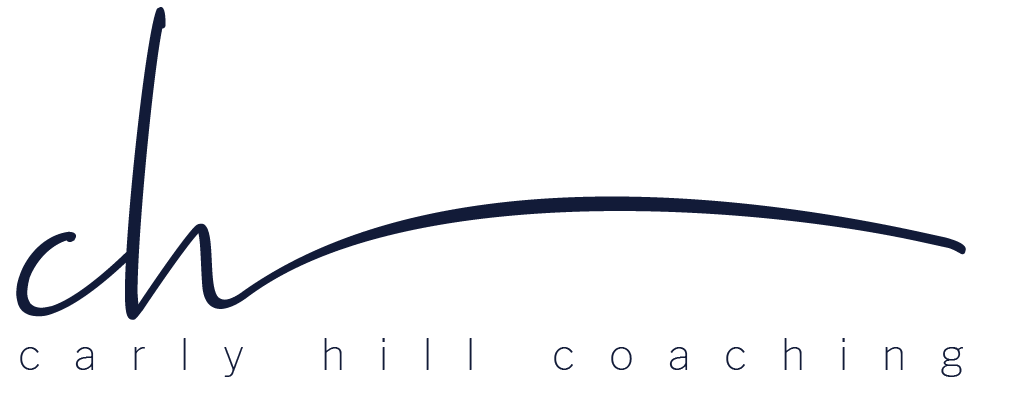Carly Hill Takes you From Therapist to Coach with 3x the income
Legal Compliance Tips for Therapist-Coaches

FSDAVCFEBFEVSDDVFSD

FSDAVCFEBFEVSDDVFSD

FSDAVCFEBFEVSDDVFSD
Legal Considerations
Understanding Therapy vs. Coaching Laws

Therapists transitioning into coaching must understand the legal distinctions between these roles. Therapy is a regulated healthcare profession requiring licensure, state compliance, and adherence to HIPAA. Coaching, by contrast, is unregulated, offering more freedom but also requiring careful boundaries to avoid legal risks.
Blurring the line between the two—such as presenting coaching as therapy—can lead to licensing issues and ethical violations. To stay compliant, therapist-coaches must clearly differentiate their services. Maintaining that separation not only ensures legal protection but also upholds professional standards and builds client trust from the outset.

Importance of Informed Consent in Coaching
Informed consent is a critical foundation for ethical coaching practices, especially for therapists adding coaching to their services. It ensures that clients understand the nature, scope, and boundaries of coaching as distinct from therapy. Coaching does not involve diagnosing or treating mental health disorders, and therapist-coaches must clearly communicate this difference. Informed consent empowers clients to make educated decisions about their care and helps prevent confusion about what the coaching relationship entails.
A comprehensive coaching agreement should detail the services offered, limitations of confidentiality, and the qualifications of the coach. It should also specify that coaching is not a substitute for therapy. This transparency manages expectations and reduces the likelihood of legal complications. When clearly defined, these terms help therapist-coaches maintain ethical clarity and professional integrity while protecting clients’ rights.
Informed consent should not be a one-time formality but a dynamic document updated as services evolve. Therapist-coaches are encouraged to consult resources like the International Coaching Federation for guidance on best practices. Prioritizing informed consent builds trust and sets a strong ethical foundation for coaching work.
Establishing a Separate Coaching Business Entity

Creating a distinct legal entity for coaching services is an important step for therapists adding coaching to their practice. This separation reinforces the boundary between therapy and coaching, which helps reduce regulatory confusion. Forming a legal structure—such as an LLC or Professional Corporation—also provides important liability protection and enables better financial oversight. Each state has different requirements, so consulting a legal expert is essential.
In addition to compliance, a separate business entity supports unique branding and operational clarity. It allows therapists to market their coaching services independently, which helps clients clearly understand what is being offered. This legal distinction strengthens ethical coaching practices and supports long-term business growth while protecting both the therapist’s license and the coaching relationship from potential legal risks.

In addition to establishing a legal structure, therapists should develop distinct marketing strategies for their coaching services. This includes creating separate websites, branding materials, and promotional content that clearly differentiates coaching from therapy. Consistent messaging and visual identity across marketing platforms help clients understand the scope of services, reducing confusion and enhancing professionalism. Defining coaching offerings separately supports ethical boundaries and aligns with legal compliance.
Beyond marketing, therapists should also maintain separate financial systems for their coaching business. This includes opening a dedicated business bank account, using distinct invoicing tools, and tracking income and expenses independently from the therapy practice. Proper financial separation not only simplifies tax reporting but also reinforces the independence of each service line. Together, these operational practices—when done intentionally—demonstrate a clear commitment to ethical coaching standards and help therapist-coaches manage their businesses effectively and responsibly.
Maintaining Ethical Standards in Coaching
Adhering to ethical standards is a foundational responsibility for therapists who begin offering coaching services. A primary concern is avoiding dual relationships that could blur professional boundaries or impair objectivity. Clients must clearly understand whether they are receiving therapy or coaching, and this requires therapist-coaches to explicitly define the scope of each service. Ethical coaching practices begin with intentional communication, consistent boundaries, and a strong commitment to client clarity.
Ongoing professional development plays a critical role in ethical coaching. Regular supervision and participation in coaching-specific education—especially around ethical conduct—help therapist-coaches stay accountable and improve their practices. Staying updated on evolving laws and guidelines for coaching ensures that services are offered responsibly and legally. Engaging in continued learning also models ethical growth and integrity for clients and colleagues alike.
By prioritizing ethics, therapist-coaches create coaching relationships built on trust and transparency. When clients feel safe and respected, the coaching process becomes more effective. A strong ethical foundation not only protects the practitioner’s reputation but also supports long-term coaching business sustainability and client satisfaction.
Role of Carly Hill Coaching in Legal Transitions
Carly Hill Coaching provides essential guidance for therapists navigating the legal and ethical transition into coaching. The program is specifically designed to support therapist-coaches by offering tools and resources that address legal considerations for coaches, business formation, and ethical coaching practices.
Through structured support, participants learn how to distinguish coaching from therapy, develop client agreements that include informed consent in coaching, and establish legally compliant business entities. The training emphasizes maintaining clear boundaries, aligning services with professional standards, and creating a sustainable coaching business.
By leveraging Carly Hill Coaching’s expertise, therapists can confidently expand their services while ensuring they remain compliant with therapy vs. coaching laws and ethical expectations for the coaching profession.


Engaging with Carly Hill Coaching connects therapists to a community of like-minded professionals who value ethical coaching practices. This network offers collaboration, shared learning, and consistent support through workshops, webinars, and personalized coaching. With a strong focus on legal compliance and ethical integrity, Carly Hill Coaching becomes a trusted partner in professional development. Therapists are empowered to grow coaching businesses that are legally sound, clearly defined, and aligned with their values—laying the foundation for sustainable, long-term success.
Additional Resources for Legal Compliance
Therapists transitioning into coaching must stay well-informed to ensure their new services comply with all legal and ethical standards. One of the most reliable starting points is professional organizations such as the International Coaching Federation (ICF), which offers detailed ethical guidelines, sample consent forms, and frameworks that clearly separate therapy from coaching. These resources support best practices that are especially helpful for therapists adjusting to the unregulated nature of coaching.
Books like Law and Ethics in Coaching offer in-depth explorations of legal considerations for coaches, including managing dual roles, maintaining boundaries, and understanding liability. These texts explain how coaching laws differ from therapy regulations and highlight case studies that help therapists make informed decisions. Consulting with attorneys who specialize in healthcare or business law is another important step. They can provide advice tailored to specific state laws and practice structures.
Because laws vary from state to state, staying current on local regulations is essential. What’s acceptable in one jurisdiction may not be permitted in another, particularly when it comes to therapy vs. coaching laws. By proactively seeking out education, legal counsel, and ethical coaching practices, therapists can protect their professional licenses, avoid legal pitfalls, and create coaching businesses that are compliant, clearly structured, and aligned with both client needs and professional integrity.
Conclusion and Next Steps

Transitioning from therapy to coaching requires careful consideration of legal and ethical responsibilities. Therapists must understand the distinctions between therapy and coaching, set clear boundaries, and ensure clients give informed consent. Establishing a separate business entity further supports compliance and helps protect professional licensure.
Support from programs like Carly Hill Coaching can simplify this process. Therapists are encouraged to seek continued education, legal guidance, and ethical coaching resources to stay aligned with current regulations. With the right structure and awareness, adding coaching can become a rewarding extension of therapeutic work. When handled properly, this shift allows therapists to broaden their impact, offer valuable new services, and build a compliant coaching practice that honors both client care and professional standards.

Final Thoughts on Legal Compliance
Navigating the legal landscape as a therapist-coach requires diligence, intentional planning, and informed decision-making. Understanding legal considerations for coaches—such as therapy vs. coaching laws, licensing boundaries, and informed consent in coaching—is essential to maintaining compliance and protecting professional credentials. Establishing a separate business entity and maintaining clear service distinctions help reinforce ethical coaching practices and reduce the risk of regulatory issues. These foundational steps support a sustainable and compliant coaching practice.
Utilizing trusted resources like Carly Hill Coaching and seeking advice from legal professionals equips therapist-coaches with the tools to transition safely and effectively. With ongoing education and a clear commitment to ethical standards, therapists can confidently expand their services without compromising client trust or professional integrity. A thoughtful approach to legal compliance ensures therapist-coaches are not only meeting legal obligations but also building coaching businesses rooted in professionalism, ethical clarity, and long-term success.

Carly Hill
LCSW; Author
Stay Up-to-date with our Content
Subscribe to learn more about our mission!
Stay Up-to-date With Our Content
Subscribe to learn more!
Free Resources
Free Resources
Copyright © 2026 Carly Hill Coaching LLC


